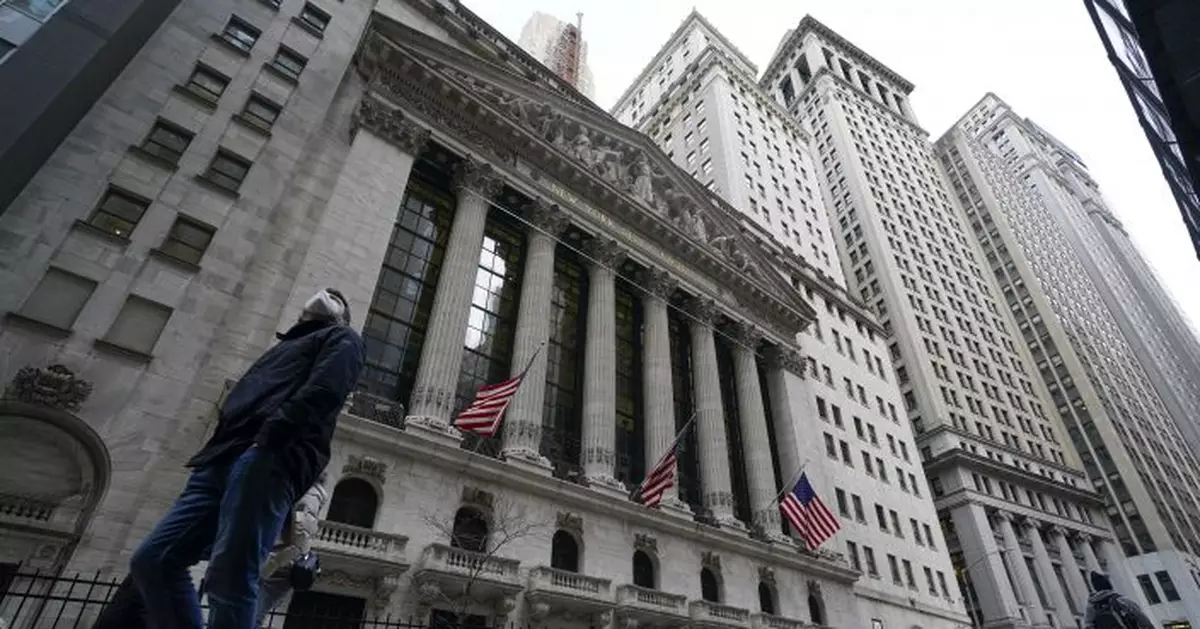Asian shares were mixed Monday as Western nations moved to tighten sanctions against Russia and President Vladimir Putin escalated tensions by ordering Russian nuclear forces put on high alert.
Japan's benchmark Nikkei 225 recouped early gains to inch up nearly 0.1% in morning trading to 26,493.03. Australia's S&P/ASX 200 rose 0.5% to 7,032.90. South Korea's Kospi edged up 0.2% to 2,682.98. Hong Kong's Hang Seng slipped 0.9% to 22,567.84. while the Shanghai Composite lost 0.5% to 3,434.22.
Global stock markets have been turbulent since Russia invaded Ukraine last week. Stocks have swung wildly amid uncertainty about how much Russia’s invasion will push up inflation, particularly oil and natural gas prices, and drag on the global economy.
Although the Asian region is unlikely to suffer direct damage from the war in Ukraine, higher energy prices are likely to prove devastating, especially for oil-importing nations like Japan.
Japan has joined the West in slapping sanctions on Russia, joining the international effort to block some Russian banks from the global SWIFT payment system. Prime Minister Fumio Kishida has also said Japan plans to freeze Putin's assets.
“As ties between Russia and Europe worsens, it brings into question whether Russia’s trade relationship with China will strengthen,” said Yeap Jun Rong, market strategist at IG in Singapore.
Russian forces have encountered strong resistance from Ukraine defenders, and U.S. officials believe the invasion has been more difficult than the Kremlin envisioned.
On Wall Street, the S&P 500 ended last week by climbing 2.2% and notching its first weekly gain in three weeks, adding 95.95 points to 4,384.65. The Dow Jones Industrial Average rose 834.92 points, or 2.5%, to 34,058.75. The Nasdaq composite gained 221.04 points, or 1.6%, to 13,694.62 after swinging between modest gains and losses. The Russell 2000 index rose 44.92 points, or 2.3%, to 2,040.923.
Uncertainty about interest rates and inflation is adding to the worries to the economies, already hit for two years by the coronavirus pandemic and its curbs on travel, trade and economic activity.
Also adding to worries is how the U.S. Federal Reserve has suggested it will raise short-term interest rates next month by double its usual increase, the first rate increase since 2018. Higher U.S. rates tend to put downward pressure on all kinds of investments, and can have global repercussions.
In energy trading, benchmark U.S. crude gained $4.39 to $95.98 a barrel. It slipped 1.3% to $91.59 per barrel Friday. Oil prices have briefly topped $100 per barrel lately amid worries that the conflict and upcoming sanctions could disrupt supplies. Brent crude, the international standard, jumped $4.24 to $102.17 a barrel.
In currency trading, the U.S. dollar inched down to 115.55 Japanese yen from 115.56 yen. The euro cost $1.1173, down from $1.1271.


